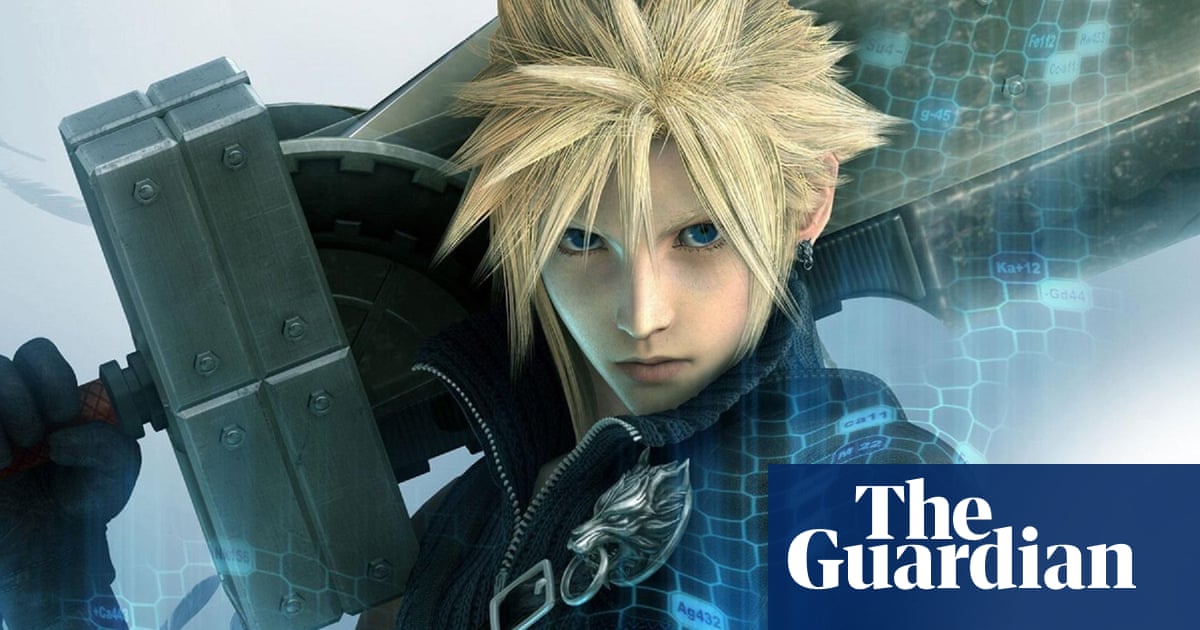
“You pierce my soul. I am half agony, half hope. Tell me not that I am too late, that such precious feelings are gone for ever. I offer myself to you again with a heart even more your own than when you almost broke it, eight years and a half ago. Dare not say that man forgets sooner than woman, that his love has an earlier death. I have loved none but you.”
The trouble with most English males is that they don’t speak English – they speak euphemism. It’s a surrogate mother tongue. A girl needs those little United Nations headphones to decipher what British blokes are saying to you. For example, “You Australians, are so refreshing” decodes as “rack off, you loud-mouthed colonial nymphomaniac.” (I know, how dare he call me a “loud mouth”! Please. I have my standards.)
The average Englishman never does anything spontaneous without a warning; his condoms are practically pinstriped. Especially the upper-class Brit. His facial expressions are as animated as taxidermy. His voice is so brittle it could qualify for osteoporosis pills. The Received Pronunciation accent is sharp enough to draw blood – hell, you could shave your legs with it. Even worse, upper class Poms don’t marry for love; there’s always a lifeguard by their gene pool.
In short, you have to do open-heart surgery before knowing what goes on inside your average Englishman. And it’s this very fact that melts female hearts when Captain Wentworth finally declares his passionate love for Anne Elliot in Persuasion.
If you haven’t read the novel, I suggest you slip between Jane’s covers this Valentine’s Day – satisfaction guaranteed. Because what does a woman really want in bed? Breakfast – and a really good book.
The Left Hand of Darkness by Ursula K Le Guin
Chosen by Monique Roffey, author of Costa book of the year, The Mermaid of Black Conch
This is an incredible queer love story between Genly Ai, who is a heterosexual male human visiting the planet Gethen, and Estraven, who is ambisexual, and the only person Genly can trust. Genly doesn’t see their love affair coming, until they’re trapped together in a tent while Estraven is in “kemmer”, which you could compare to being on heat. He tells Genly to not touch him, to not come too close. And suddenly Genly, this normative man, sees the “other”, the feminine and the masculine in Estraven. There’s this beautiful moment when Genly realizes that he is in love with Estraven. They’re both aliens to each other. It’s something that’s guided me as a writer – in The Mermaid of Black Conch, there’s a sort of ambiguous sexuality; my mermaid is not quite this or that. Writing like Le Guin’s is monumental, a landmark in my reading.
Victory by Joseph Conrad
Chosen by Sebastian Barry, author of Days Without End and A Thousand Moons
My permanent idea of romance was probably formed in the strange forge of being 22 and reading Victory while in Paris. Axel, the son of a philosopher, takes himself off to an island called Samburan, a typican Conradian everyplace and no place. On a neighbouring island he meets and rescues Lena, a young woman in a touring orchestra who is being terribly mistreated by her employers. Axel is an incredibly introspective and detached person, but he falls in love with her, and she with him. An awful crowd comes to destroy their innocent life and, at the end of the book – and this is probably the least cheerful romantic moment in literature – Lena sacrifices herself for Axel, who kills himself. Their bungalow is lit on fire, and the two of them are found in the bed, burned. It is a dark image, but in another way it’s an absolute confirmation of who the two of them are, in a rather excluding world.
When I was 22 I just thought, that’s it. It was the quality of her devotion and the reluctant way he loved her. It is very beautiful. Some people hold Victory in lower regard, but I think it was one of Conrad’s best books. Rather unfairly to everyone else, he wrote six or seven masterpieces in a row.
If Beale Street Could Talk by James Baldwin
Chosen by Caleb Azumah Nelson, author of Open Water
The story centres around a couple, Alonzo and Tish. Alonzo is wrongly accused of a crime, and the story cuts between him in prison, and their life beforehand. They grew up together and their relationship builds until they’re about 18 or so, when they begin to see each other as a potential romantic partner. On their first real date, they get food, walk through the park, and then head back to his place. They understand that they are about to sleep together, but it’s still unspoken. When Tish undresses, he puts a Mexican shawl over her and they start laughing, but then she starts crying. They go back and forth, trying to understand why they’re so emotional, and she says: “I just know that I love you.”
That point always gets me. They really feel something for each other, but don’t quite know what it is yet. Baldwin writes: “It was like nothing was happening in the world but us” – the pair of them in this room. Even when Tish says, “I just know that I love you”, it can’t quite encapsulate everything that they’re feeling. I got the book out last night to read this moment again, and it brought me to tears.
Love in the Time of Cholera by Gabriel García Márquez
Chosen by Ingrid Persaud, author of Love After Love
A vow of eternal love made as a youth is followed through for 51 years, nine months and four days. Florentino’s obsessive love for Fermina defies age and time, a love for his beloved that remains through his whole life.
There is a moment at the end of the book where Florentino and Fermina are on a cruise ship. Florentino convinces the captain to hoist the yellow cholera flag which will prevent other passengers from boarding the ship. The captain asks where they should go, and Florentino replies: “Let us keep going, going, going, back to La Dorada.” “And how long do you think we can keep up this goddamn coming and going?” the captain asks, to which Florentino replies: “Forever.” They sail off with no destination, with love defying age and death to the very end.
The first time I read Love in the Time of Cholera, I was awestruck that a writer could be so passionate and open-hearted. When I reread it, it took my breath away. Reading it now, 20 odd-years on from the first time I read it, as an older woman, I hope that, in some small part of my heart, I’m able to love in the same way.
At Swim Two Boys by Jamie O’Neill
Chosen by Okechukwu Nzelu, author of The Private Joys of Nnenna Maloney
This 2001 novel tells the story of Jim Mack and Doyler Doyle, and reimagines a pivotal moment in history (the Easter Uprising), asking where – if anywhere – queer love might find a home.
Much of their desire is communicated through understatement (the boys refer to each other as “pal o’ me heart”) or gesture, like their pact to swim out to the distant island of Muglins Rock and claim it for Ireland. The island comes to represent the bond they have forged, and the miraculous sense of belonging they have found.
“They had this together now. They had their island. Whenever a thought crossed or a look met, if a hair but brushed a finger, this was where they would be. No one could take it from them, chance what might […] It was here was their home, it was in the sea, an island.”
Wuthering Heights by Emily Brontë
Chosen by Mike Gayle, author of All The Lonely People and 2021 winner of the Romance Novelists Association’s outstanding achievement award
“My love for Linton is like the foliage in the woods: time will change it, I’m well aware, as winter changes the trees. My love for Heathcliff resembles the eternal rocks beneath: a source of little visible delight, but necessary. Nelly, I am Healthcliff!”
As a tender-hearted 17-year-old, my response to the news that Wuthering Heights was one of our A-level set texts was to roll my eyes, and yawn. Then I read the book and fell in love with it, particularly this moment, where Catherine describes the difference between her love for brooding Heathcliff and posh Edgar Linton. This was every girl I’d ever fallen for up to this point. “I like you Mike,” they’d assure me, “you’re really lovely” – then over the weekend they’d be spotted spilling their cider and black as they snogged some floppy-haired stranger in the corner of an indie-disco. I’d console myself that while this interloper might have them physically, I on the other hand had them mentally, so to speak, and surely that was better? It was all nonsense of course, nothing less than a trumped-up consolation prize for the broken-hearted. But if the choice is no prize or a fake one, when you’re 17 the fake prize at least feels like something you can hold on to.
More Tales of the City by Armistead Maupin
Chosen by Juno Dawson, author of Wonderland
My choice is the scene in which Jon proposes to Mouse Tolliver, while he is potentially dying in hospital with an autoimmune condition. Jon has been reluctant to commit to Mouse until then, and to see him do it when he’s at his lowest and darkest period, I thought, “That’s what romance is – finding someone who is going to commit to you, literally in sickness and health.” I first read it when I was 19 or 20 years old, and remember thinking that this was the kind of love that I would want to find, somebody who would stick with you even in the worst of times. It’s meant even more to me when I’ve read it since, because Jon dies of Aids off-page. He dies between books three and four – when you pick up Babycakes, he is just dead. That’s something It’s A Sin touched on – it didn’t matter how much you liked people, the people you loved died. So Jon’s commitment to Mouse becomes even more bittersweet. The moment he proposes is so perfect and beautiful, in the late 70s before the shadow of Aids has really fallen over San Francisco; a brief, sweeping optimism.
Nick and Norah’s Infinite Playlist by Rachel Cohn and David Levithan
Chosen by Bolu Babalola, author of Love in Colour: Mythical Tales From Around the World, Retold
One passage I always go back to when I want to remember how to capture the magic of romantic connection, is one in Nick and Norah’s Infinite Playlist. It’s about a two teens about to enter college who embark on search for a band they love one wild, thrumming, sultry New York City night. Nick, a budding musician, is besotted with a girl who treats her like trash and Nora, a music fanatic… well, likewise. They are thrown together in a sweaty bar and instantly connect, while fighting that connection. Their journey throughout the night begins reluctantly, despite their electric chemistry, their shared love of music. Towards the end of the novel, where their night is turning into dawn, they stand on the street, reckoning with who they are, and there is this stunning moment:
“My heartbeat accelerates. I am in there, in the now. I am also in the future. I am holding her and wanting and knowing and hoping all at once, … we are the ticking, we are the pulsing, we are the underneath every part of this moment. And by making the moment our own, we are rendering it timeless.”
It hits on the specific, elusive alchemy of time, circumstance and connection, and the sublimity of feeling it hum together. Music is a motif throughout the book, and I’m a huge fan of music underpinning romantic moments in literature; so with the line “In the ticking, we are the pulsing,” I find the rhythm of romance, its raw and primal energy. It’s gorgeous.
84 Charing Cross Road and The Duchess of Bloomsbury Street by Helene Hanff
Chosen by Jill Mansell, author of more than 20 romantic comedies, including Rumour Has It
The two main characters of 84 Charing Cross Road, Helene and Frank, never meet as they’re separated by an ocean. But in the sequel, Helene goes to Frank’s bookshop years after he has died, and imagines him being there. I can cry just thinking about it. The first book wasn’t even meant to be romantic, but for me it is. It’s such a wonderful friendship which develops over their love of books, and it just kills me that they never met. If I was writing a novel, I would have to have some kind of gorgeous happy ending. I just couldn’t bear for it to be like it was in real life.
Jane Eyre by Charlotte Brontë
Chosen by Rowan Coleman, author of The Girl at the Window
It is a bit conventional, but Jane Eyre is my favourite novel of all time. The most romantic moment is when Mr Rochester dresses up as a gypsy woman to get time alone with Jane. In a house full of people, he’s so desperate to spend time with the governess he’s not really allowed to socialise with, so he goes to extraordinary lengths to get her alone in a room. They share an incredibly charged moment.
Their romance isn’t ideal, but that makes it more romantic for me. It’s realistic. He’s flawed. But they still love each other, beyond all of the revelations and twists. More importantly maybe, Jane comes to falls in love with herself; increasingly, she knows her own value. Charlotte writes about unrequited love with so much emotion and preciseness, and you just know she’s recreating her own feelings towards her tutor who she loved and who didn’t love her back.












